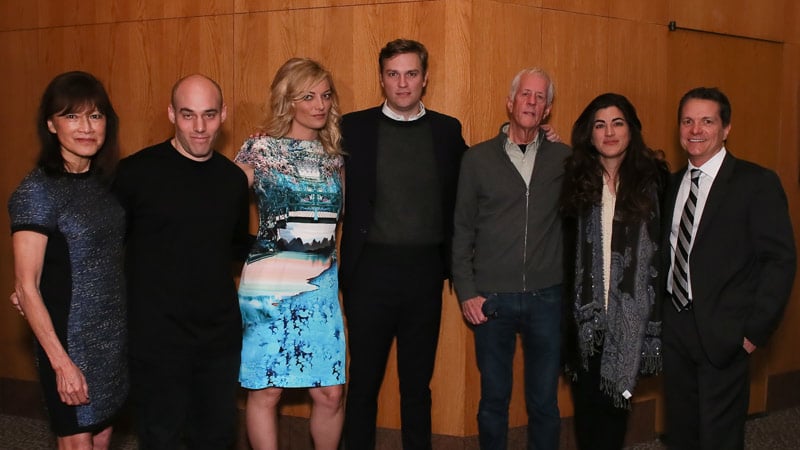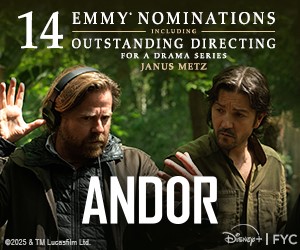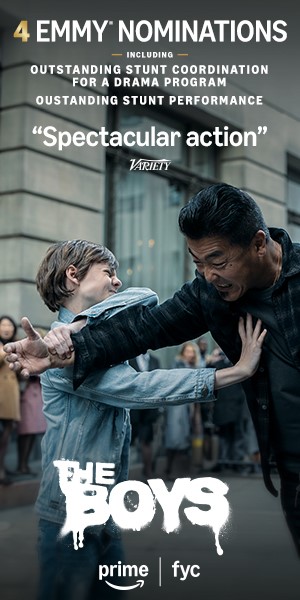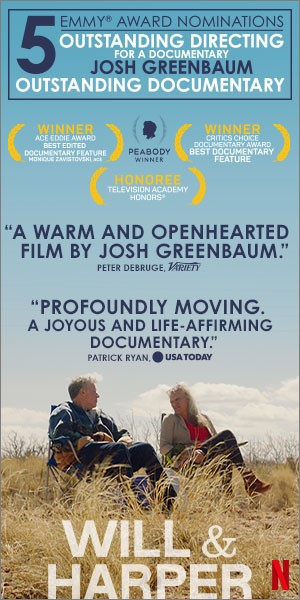photos by Howard Wise
On January 24, DGA members and guests attended the 7th Annual Meet the Nominees: Documentaries symposium at the Guild’s Los Angeles Theater complex followed by a reception to honor the nominees.
On hand to welcome the attendees with opening remarks was DGA Secretary-Treasurer Michael Apted who began his career in the genre, stating, “Once you’ve experienced that challenge, the heartbreak and joy of documentary filmmaking, you never forget it… I believe that spirit stays with you in every piece of work you ever do.”
Next, moderators and Documentary Committee Co-Chairs James Moll and Freida Mock (a previous nominee), welcomed this year’s honorees; Zachary Heinzerling (Cutie and the Boxer), Jehane Noujaim (The Square), Joshua Oppenheimer (The Act of Killing), and Lucy Walker (The Crash Reel); to the stage. Nominee Sarah Polley (Stories We Tell) was unable to attend. Mock noted that after a long year of promoting their films around the country, answering questions mostly focused on funding, tonight was a night to discuss “creating the craft and the beautiful work that you do.”
The topic that began the discussion, and came up throughout the night, was that of creating characters from the directors’ subjects in an ever-changing story. Lucy Walker related how she met snowboarder Kevin Pearce, and became interested in how his story—from suffering a traumatic brain injury to rehabilitating himself to again compete professionally—a subject she knew little about, evolved from sad to inspirational. “I didn’t know what the hell was going to happen, but I thought, wow, there’s a story. I didn’t know what would happen from this point on and I don’t know where it’s going, but I want to find out.”
For Zachary Heinzerling, his film focused on a subject more close to home. As a professional photographer, Heinzerling’s freshman directorial effort followed the 40-year relationship between famed New York boxing painter Ushio Shinohara and his wife Noriko. After Moll called the director “an artist making a film about artists,” Heinzerling, conceded it was “interesting having both the subject and director in-process creating something.”
Nominee Joshua Oppenheimer admitted to almost giving up on his project after his first vision of characters—survivors of Indonesian genocide in the 1960s—were forbidden by the army from speaking with him. He then decided to interview the aging death squad killers, initially afraid to question them about genocide, “But to my horror, every single one of them was boastful, immediately recounting the grisly details of mass killing, often with smiles on their faces.” After filming 41 subjects over two years (the entire project took over five years to complete), Oppenheimer discovered the boasting was just the opposite, “a desperate attempt to convince themselves that what they did was right.”
Jehane Noujaim—who with Chris Hedgedus won the DGA Documentary Award in 2001 for Startup.com—claimed that, “Half the film is made in the shooting, and half is in the editing,” applauding her editor, Pedro Kos, who also edited Walker’s film. On the subject of characters, her own—a group of Egyptian revolutionaries opposing the government’s human rights violations—“You never know what’s going to happen… you don’t know where the film is going, but what you can trust is if you find characters who you deeply emotionally connect to and who are surprising you and challenging you… that is going to be appealing and educational and interesting to an audience.”
To close, Noujaim stressed the importance of her film’s growing audience to spreading its message, saying, “It’s a way to say, ‘Look, this is something that needs to be witnessed and needs to be brought out in the open’… It’s the first Egyptian-nominated documentary in history and yet it’s about a subject that is trying to be whitewashed.”
Written by Kent Ochse





